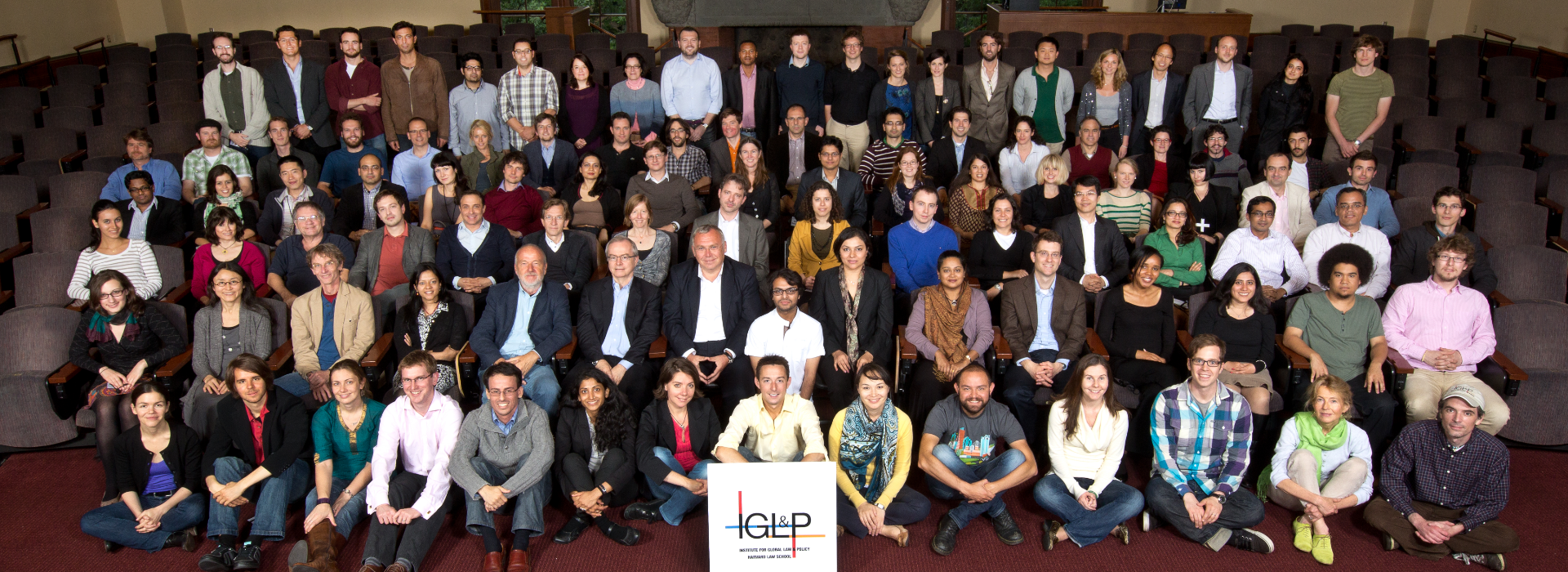哈佛法学院全球法律与政策研究所(IGLP)面对紧迫的全球挑战的法律和制度架构,致力于开创全球政策的创新方法。全球贫困、冲突、不公正和不平等是法律和制度障碍,IGLP探讨可行的应对措施,目标是在哈佛大学提供一个平台,让人们对国际法律和制度安排进行新的思考,特别强调对全球具有重要意义的想法和问题。大卫·肯尼迪教授担任研究所所长。
研究所的学者努力理解当今世界政治、经济和法律并为全球法律提供资源和信息,专注于为比较和国际法律研究和政策带来新思想和观点的年轻学者和政策制定者。IGLP旨在促进来自世界各地的年轻专家之间创造性对话的出现,加强全球创新和合作研究能力。研究所与众多国际机构建立了牢固的关系,为教师和学生提供一个对全球治理和国际事务问题的新思维感兴趣的焦点。
在过去的几年里,研究所建立了一个庞大的全球学者和政策制定者网络,致力于思考全球治理、社会正义和经济政策的新声音和观点。IGLP的目标是更好地了解当今世界如何行使权力,以及原创性和批判性思维如何改变政策专家、知识分子领袖和公民理解全球局势的方式。

The Institute for Global Law and Policy (IGLP) at Harvard Law School is committed to pioneering innovative approaches to global policy in the face of the legal and institutional architecture of pressing global challenges. Global poverty, conflict, injustice and inequality are legal and institutional barriers, and IGLP explores actionable responses with the goal of providing a platform at Harvard University for new thinking on international legal and institutional arrangements, with a particular emphasis on ideas and issues of global importance. Professor David Kennedy is the Director of the Institute.
Scholars at the Institute strive to understand and inform global world politics, economics, and law, focusing on young scholars and policymakers who bring new ideas and perspectives to comparative and international legal research and policy. IGLP aims to facilitate the emergence of creative dialogue among young experts from around the world, strengthening our global capacity for innovative and collaborative research. The Institute has established strong relationships with numerous international institutions, providing faculty and students with an interested focus on new thinking on issues of global governance and international affairs.
Over the past few years, the Institute has built a vast global network of scholars and policymakers dedicated to thinking about new voices and perspectives on global governance, social justice, and economic policy. The goal of the IGLP is to better understand how power is exercised in today's world and how originality and critical thinking can change the way policy experts, intellectual leaders, and citizens understand the global situation.